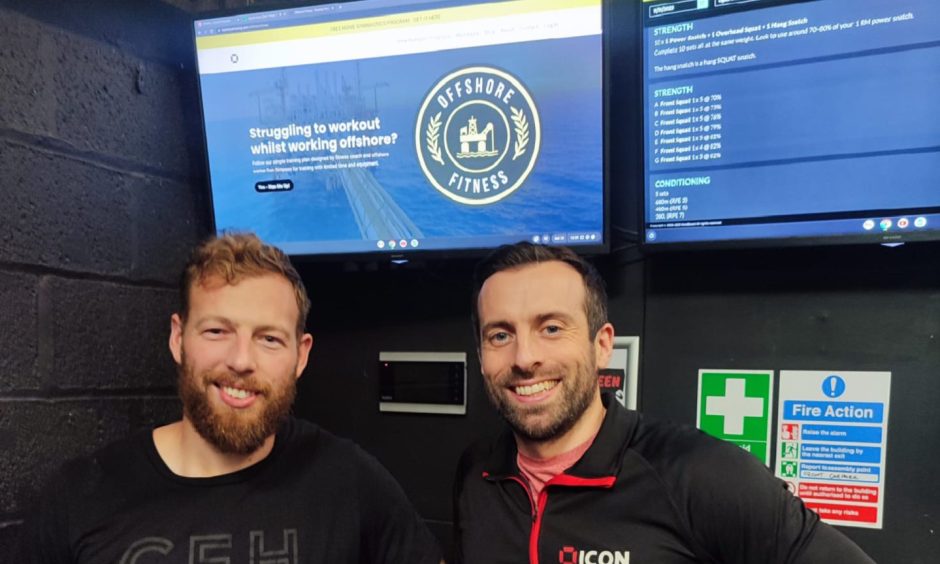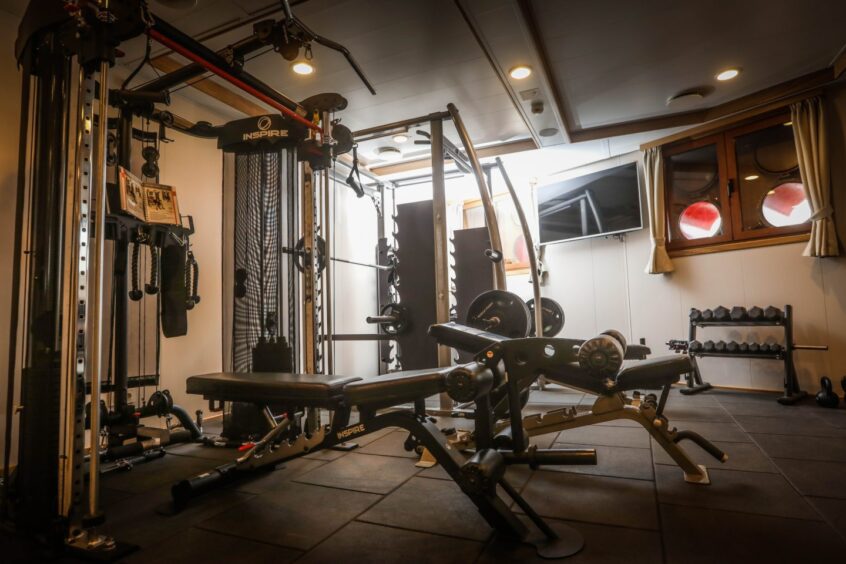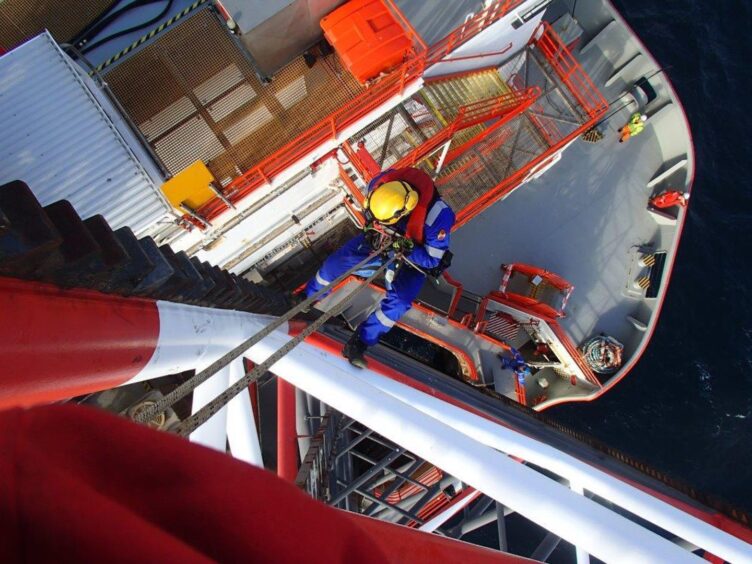New fitness company Offshore Fitness is aiming to help industry workers overcome the challenges they face staying active on the job.
It provides training programmes and nutrition advice specifically targeted at offshore workers.
Health and fitness challenges are a growing problem in the offshore industry, with the average weight of workers increasing from 75kg in 1975 to 99kg in 2023, according to data from TAC Healthcare.
As a result, industry leaders are having to address health and safety risks ranging from lifeboat capacity to helicopter safety procedures as well as upgrading medical equipment.
The training programmes put together by Offshore Fitness are designed to require minimal time and equipment so they can be easily followed both at home and offshore.
Offshore schedule impacts fitness routines
The idea for the business came from co-founder Dan Simpson’s experience after working offshore in the North Sea.
In the first few days back onshore, he found returning to the gym would often be a struggle.
Conversations with fellow co-founder and gym partner Shaun Gibbins would inevitably turn to the difficulties he had sticking to his training regime while working as an electrician and rope access technician offshore.
Without access to the same equipment and nutrition options, Dan, who works on the Catcher platform in the North Sea, said he found it difficult to stick to his gym routine at work.
“I just found when it was a small gym (offshore), there’s not a lot of equipment and then I was always having to wrack my brains for ways I can change what I’m doing to fit around that,” he said.
“Changing from a barbell to a dumbbell, if I can’t run then I’ve got to row or bike.
“Sometimes the gyms are so small that you can’t even get in. Sometimes I have to go to my room to do some exercises.”
The changes in available equipment, sleep schedules and food often made it difficult for Dan to stay motivated, particularly towards the end of a three-week stint.
Offshore fitness community leads to business idea
Looking for ways to keep himself motivated, Dan started to get his colleagues offshore to join him in the gym.
Adding a social element to his workout routine not only kept him more committed, Dan also found it had benefits for his mental health as well.
Over time, as more of his colleagues began to take an interest in joining in, Dan soon found himself being asked to put together training programmes.
Having spent 10 years running sports brand Icon Nutrition, Shaun said his fitness industry knowledge had complimented Dan’s energy sector experience as they developed Offshore Fitness.
Dan said the feedback so far had been overwhelmingly positive, with close to 100 people already signing up to the programme.
“It’s early days but it’s been very positive, which is nice because obviously any time you do something new you open yourself up to criticism and failure,” he said.
“We know that a problem is there and, in our heads, we’ve got a solution for it, but to now be at the stage where we’re actually getting people coming in who we didn’t know beforehand is great.”
The pair have also started a free Offshore Fitness Facebook group to build a community for workers to share exercise and nutrition tips and discuss their experiences within the industry.
In the longer term, they hope to work with offshore operators to make fitness programmes available for staff across entire platforms to use.
Nutrition choices a challenge for offshore workers
“Food offshore is all dependent on the budget that’s given to the catering companies,” he said.
“If they’ve got a big budget, you get great food. You get more choice and it’s a lot easier.
“But when the budget is cut, which they tend to be quite a bit because of oil prices going up and down, you start to get fewer choices.”
While there are almost always healthier options available, Dan said resisting the chips after a 12-hour shift in gruelling conditions was often a challenge.
Missing family back home during longer stints offshore would also lead to comfort eating.
Alcohol restrictions on offshore platform often led to people to eating more.
“A lot of offshore workers drink a lot, and if they can’t drink a lot they’re going to eat,” Dan said.
“People need to realise it’s more about portion sizes.”




Conversation